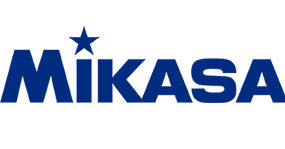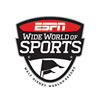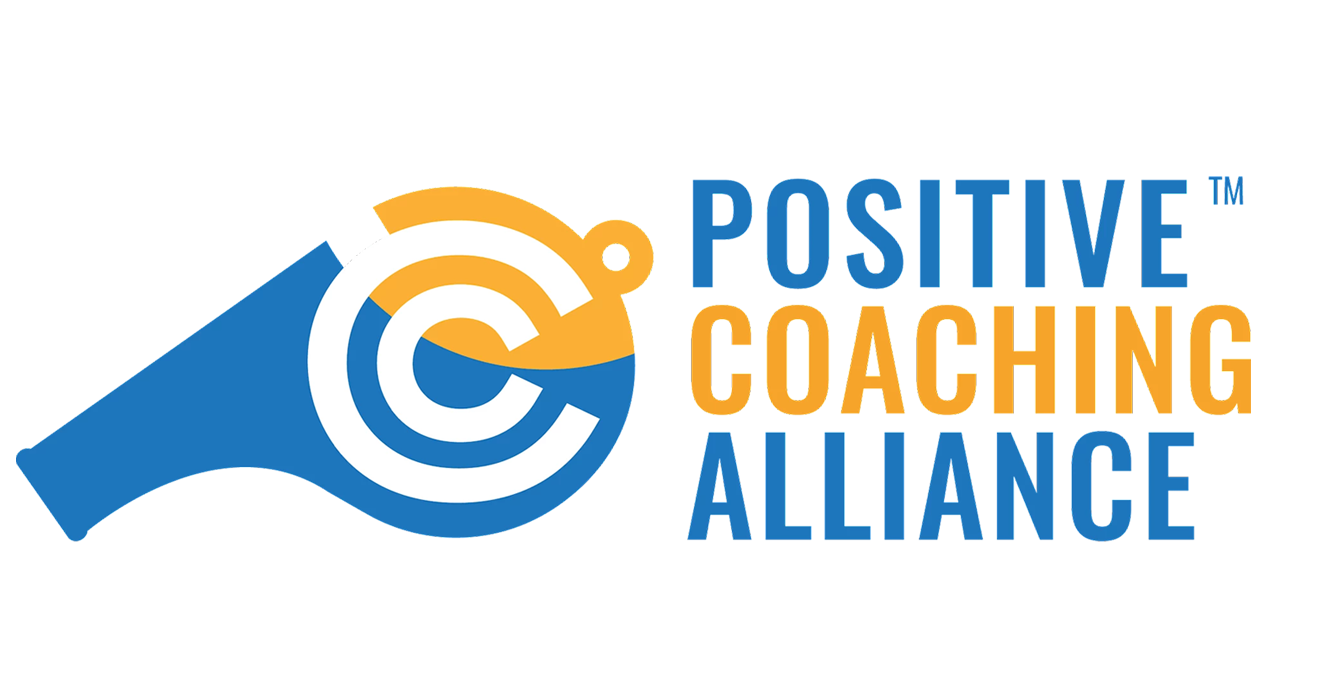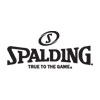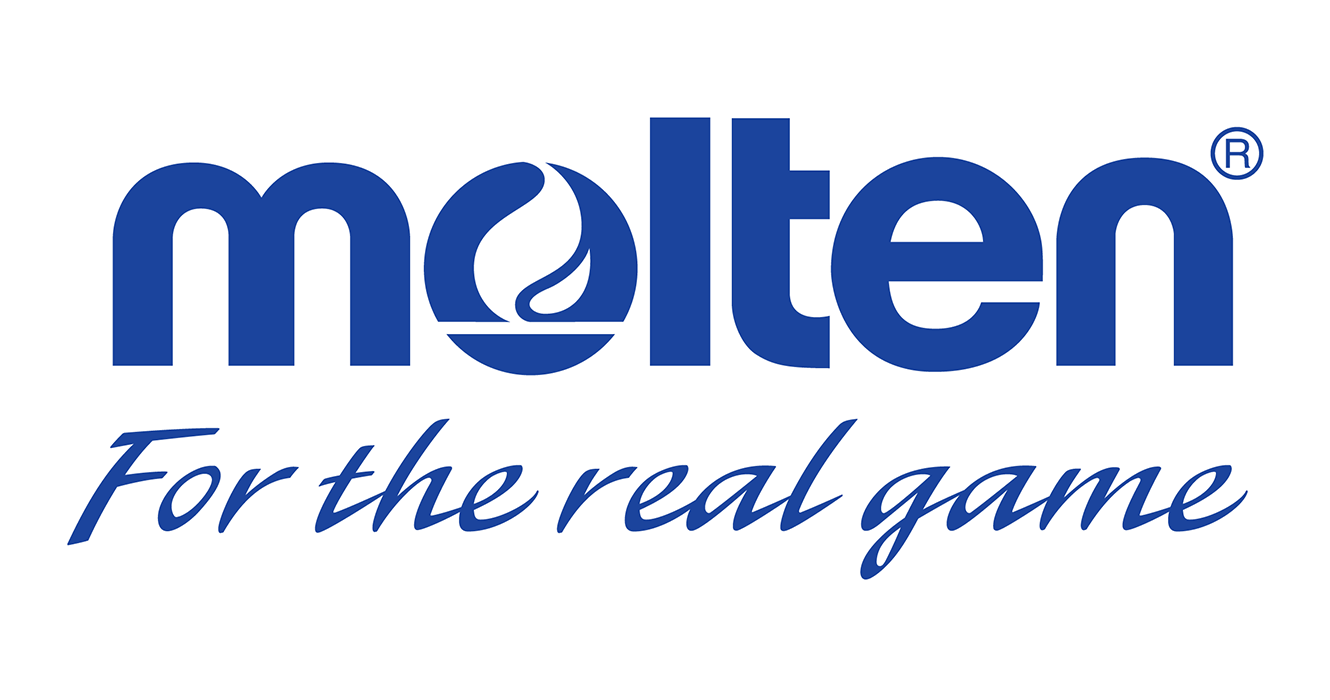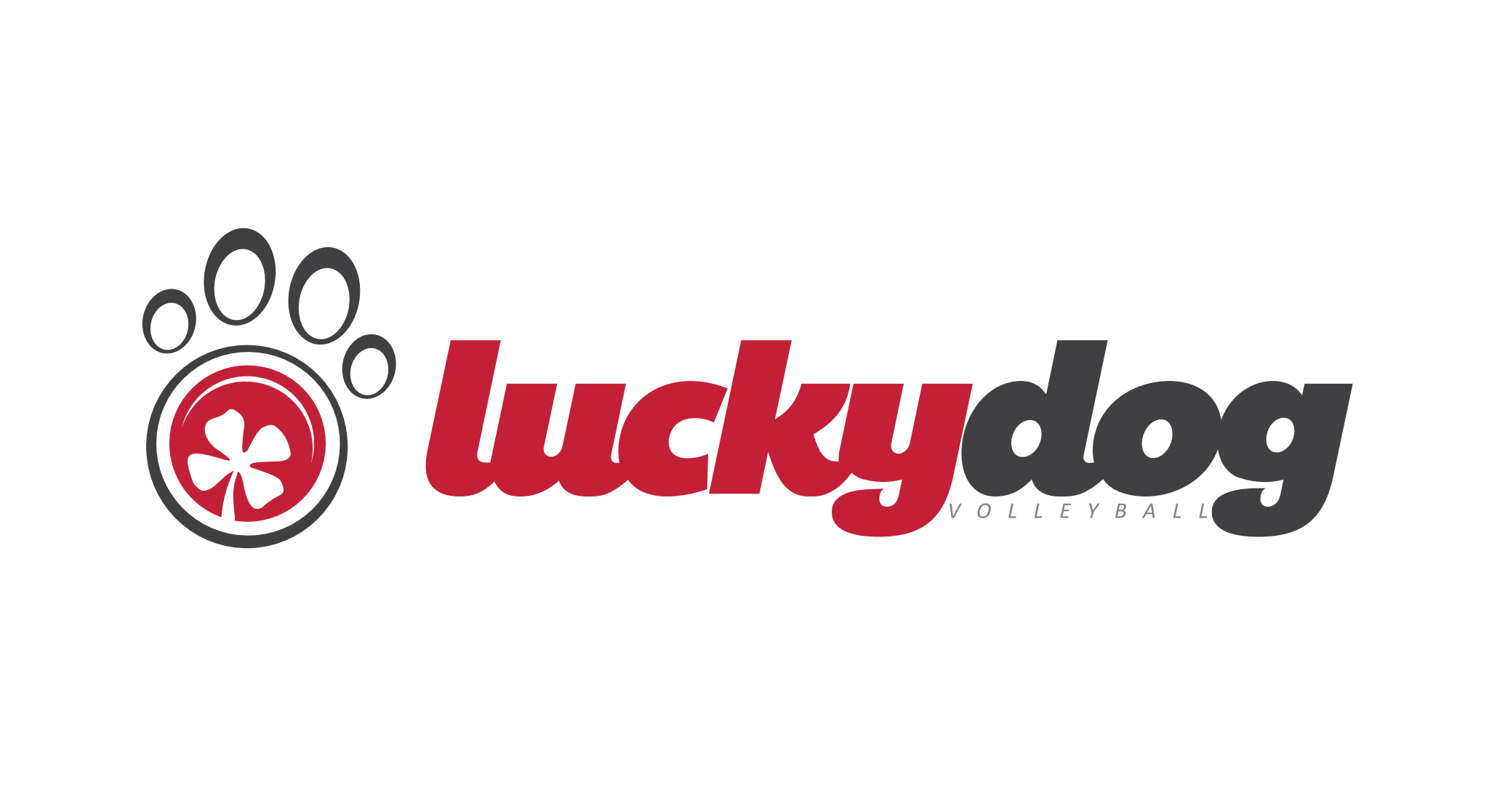FORGOTTEN FRESHMAN JUSTISE WINSLOW MAY BE KEY TO DUKE’S NCAA TOURNAMENT HOPES
2015-03-17Originally posted on bleacherreport.com by Jason King DURHAM, N.C. — Robin Davis walked into Houston's St. John's School more than a year ago and asked an administrator to pull her son out of class. The start of the early signing period was less than 24 hours away, and Justise Winslow—one of the nation's ...
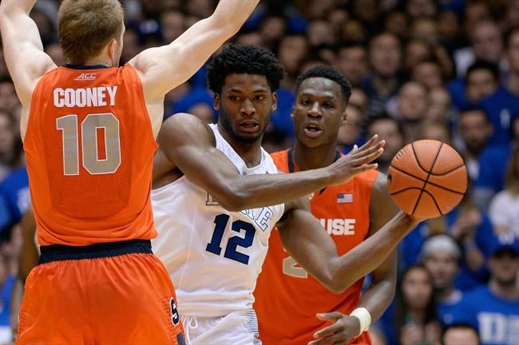 Originally posted on bleacherreport.com by Jason King
Originally posted on bleacherreport.com by Jason King
DURHAM, N.C. — Robin Davis walked into Houston's St. John's School more than a year ago and asked an administrator to pull her son out of class.
The start of the early signing period was less than 24 hours away, and Justise Winslow—one of the nation's top uncommitted prospects—had yet to pick a college.
"Ready to get this over with?" Davis said a few minutes later as her son entered the room. The 17-year-old senior could only nod.
For the next three hours, in a courtyard just outside the dean's office, mother and son sat at a picnic table and spoke at length about Winslow's options.
He'd visited Arizona more than any other school and felt at home in Tucson. Signing with Florida was tempting after playing for Gators coach Billy Donovan the previous summer on Team USA's U19 team. And Robin wasn't shy about expressing her fondness for UCLA and the glitz and glamour of Los Angeles, where one of her older sons resides.
Finally, after a recruiting process that stretched nearly three years, Winslow reached a moment of a clarity. There was one school, he said, without any flaw. Tears welled in Winslow's eyes as he raised his head and looked at Robin.
"I'm going to Duke," he said, and then Winslow began to cry.
Robin stood and hugged her son as students and school officials trickled outside to congratulate Rivals' 12th-ranked player in the Class of 2014.
"I think the whole school knew we were out there talking," Robin said. "It was a very emotional moment. Everyone wanted what was best for Justise."
Sixteen months later, the decision has clearly paid off for Winslow.
And also for Duke.
As Duke begins the NCAA tournament this Friday in Charlotte, North Carolina, Winslow is averaging 12.3 points and 5.9 rebounds as a starter for the second-ranked Blue Devils. The 6'6" wing has been particularly effective during the past month, scoring 14.9 points and snaring 7.8 boards while earning a reputation as one of college basketball's top defenders.
Not bad for a player who, despite his lofty recruiting ranking, was often treated as an afterthought in a recruiting class that included the nation's No. 1 overall prospect in Jahlil Okafor and the top point guard guard in Tyus Jones. The twosome generated much more of a national buzz when they committed less than a week before Winslow, probably because they were regarded as a "package deal."
"The main concern—and probably the only concern—Justise had about Duke," Blue Devils assistant Jeff Capel said, "was that he didn't want to be seen as 'the other guy.' He didn't want to be viewed a third wheel."
The mere thought of that is laughable now.
Anyone who watches the 29-4 Blue Devils can see that Winslow—a projected top-10 pick in this summer's NBA draft—is every bit as important to Duke's success as Jones and Okafor. After a 23-point, nine-rebound effort in a late-February win vs. Syracuse, Okafor said Winslow was "the best player on the court."
Winslow is Duke's X-factor. The Blue Devils would've been good without Winslow. But with him the team's potential is limitless, a national championship hardly out of the question.
As the expectations continue to elevate, Winslow appears undaunted. While lot of 18-year-old freshmen would flounder when faced with so much pressure, Winslow thrives on it to flourish.
"Have I surprised myself?" he said. "Not really. I've been preparing for this moment my whole life."
Winslow pauses.
"I'm just thankful," he said, "that I had so much help."
Duke's game against Syracuse is at halftime when a phone call comes from Cabo San Lucas.
"Are you watching Justise?" the voice on the line booms. "This is his best game yet."
Steve Trauber may be on vacation, but that isn't going to keep him from watching Winslow compete for the Blue Devils. As much as anyone, Trauber is one of the main reasons Winslow made it this far in the first place.
A multimillionaire, Trauber is the vice chairman and global head of energy for Citibank's investment banking division in Houston. He met the Duke forward when Winslow became an AAU teammate of his son, J.T., in the third grade and began providing financial backing for the program one year later, when Trauber also became the coach.
The arrangement continued until both players graduated high school, and Trauber spared no expense.
Although there were a few exceptions, Trauber's AAU squads traveled to tournaments three weekends per month. Trips to places such as Italy and Hawaii weren't uncommon, and postgame meals often took place at upscale steakhouses. Trauber even designed his players' shoes on NikeID.com.
Excessive as the lifestyle may have seemed for a middle school or high school player, anyone associated with Trauber's program knew his intentions extended far beyond molding his athletes into Division I-caliber players. He wanted them to become good people, too.
Other than Trauber's son, every player on Trauber's teams was black, and most came from low-income, single-parent homes that lacked the presence of a strong male role model.
"It was about so much more than basketball," Trauber said. "We wanted to make sure they grew up to be mature young men with a degree of character and integrity."
Trauber paid for his players to attend etiquette classes, where they learned about place settings at fancy restaurants, the proper form for cutting a steak and to "never order spaghetti when you're on a date," Winslow chuckled.
Players were required to wear a button-down shirt and khaki pants during team dinners, and road trips often included outings to historical sites in cities such as Washington, D.C. or New Orleans, where they witnessed the devastation of Hurricane Katrina.
Trauber, 52, paid for tutors to accompany the team on road trips to help prepare them for the ACT and make sure they stayed on top of their classwork. Each Christmas, the team adopted a needy family, giving the chance for players to deliver presents and feel the joy that comes along with giving back to the community.
All 10 of the members of Winslow's team are currently on Division I rosters. That list includes Kelly Oubre (Kansas) and Justin Jackson (North Carolina). Trauber estimates he spent more than $2 million on his AAU squads over the years.
"One night Steve was being honored at a banquet in Houston," Robin said. "He rushed to our game as soon as it was over and coached the team in his tuxedo.
"He and his wife [Leticia] have such big hearts. It just brings them so much satisfaction to help people."
The Traubers took a particular interest in Winslow, going so far as to designate a room for him in their home. Steve once drove Justise and a girl to the movies, laughing from the back row of the theater when the gangly teenager got rejected when he tried to put his arm around his date.
By the time Justise reached sixth grade, Robin had asked Steve and his wife to become his godparents.
"If anything ever happened to me," she said, "they would be in control. We already consider them family."
The influence Trauber played in Winslow's childhood filled a void left by his father, with whom he's never been close.
Rickie Winslow was a member of the Phi Slama Jama squad featuring Hakeem Olajuwon at the University of Houston and was drafted by the Chicago Bulls in 1987. He played in seven NBA games as a rookie before spending the rest of his career overseas.
Rickie and Justise Winslow are one of just five father-son combos in history to both compete in the McDonald's All-American Game.
Still, Winslow's success on the basketball court didn't bring him any closer to his father, who had divorced Robin by the time Justise was four. Winslow has always maintained a relationship with Rickie—who was an assistant coach on his high school basketball team—but when it came to guidance, he looked to Trauber.
"He was a father figure for me," Winslow said. "He didn't have any selfish intentions. He never wanted anything back from me. All he cared about was that I turn out to be a good person."
Trauber, who played one college season at Rice, didn't hesitate to use tough love to get his point across. Winslow had just returned from an overseas trip with USA Basketball when he showed up for a summer league game at the Peach Jam Tournament—one of the most high-profile recruiting events of the summer—in street clothes, saying he was too tired to play. Trauber ripped into him and reminded him that his absence on the court was hurting his team.
Another time, in Hawaii, Trauber benched Winslow for an entire game because of a poor attitude.
"Even his mom was like, 'How could you do that to my son?'" Trauber said. "But I'm glad I did it. The star of the team has to be a leader, and he wasn't acting like that. So many told him 'yes' all the time that he needed someone to be tough on him."
Trauber wasn't the only person Winslow sought out for guidance.
Winslow has four siblings, including two who are college athletes; Josh plays football at Dartmouth, and Bianca is on the women's basketball squad at Houston.
"I was always playing against my older brothers," Winslow said. "I wasn't as good as them offensively, but defensively, I was strong for my age. If I wasn't going to score on them, I was going to defend them and stop them. That's where that pride on defense comes from."
No one, though, influenced Winslow more from a basketball standpoint than John Lucas, the ex-NBA player/head coach who trains prospects in the Houston area. Many of Winslow's childhood summers were spent in "The Lab," the nickname of Lucas' gym. Weights and skill work in the morning was followed by more skill work and pickup games in the evening.
While more and more coaches these days are increasingly politically correct and hesitant to berate a player when he performs poorly, Lucas is hardly afraid to scream and cuss when the effort isn't there.
Winslow liked being challenged by Lucas and developed toughness by playing against NBA players such as J.R. Smith and Wilson Chandler and standouts closer to his age such as Andrew and Aaron Harrison (Kentucky), L.J. Rose (Houston) and former Duke teammate Rasheed Sulaimon.
"He's been playing against pros since the eighth grade," Lucas says. "Any time an NBA guy was in the gym, he wanted Justise on his team. He has the capacity to be whatever he wants to be. That's been obvious for a long time."
Unlike most of Houston's college prospects, Winslow didn't attend a big public high school and instead followed in his siblings' footsteps and enrolled at St. John's, whose reputation was based more on academics than athletics.
Class and homework demands were intense, he said. A lot of nights Winslow, fatigued from practice, went to bed at 8 p.m. and then woke up at 3:30 a.m. to get his homework finished before leaving for class.
"So many people would try to tell me to pull him out and put him in a big public school so he could play for a better team," Robin says. "But why would I have done that? He was getting a great education at one of the best schools in the state, and he was traveling the country with an AAU team playing against the top players in the nation.
"He truly had the best of both worlds."
Before going to bed to rest up for his recruiting weekend, Justise Winslow and his mother popped into the restaurant at the Washington Duke Inn around 11 p.m. for some homemade potato chips and onion dip.
Winslow's first-ever visit to Durham had begun earlier that evening with a brief meeting with Mike Krzyzewski. A campus tour, chats with staff members and former players and other activities were scheduled for the following day.
"If you want to commit now, you can," Robin Davis told her son. "If it feels right, just go ahead and do it."
Only 15 at the time, Winslow smiled and shook his head.
"Mom," the high school sophomore said, "we've only been here for three hours. The visit hasn't even started yet."
Just as his comment would indicate, Winslow spent the next two years doing his due diligence when it came to researching his college options. According to Trauber, Winslow visited Arizona "six or seven times" during the recruiting process and became extremely close with Donovan at Florida. He also considered UCLA and Texas A&M.
Winslow loved Duke all along, but all the way up until the fall of his senior year, something was making him hesitate.
"So many coaches were trying to put doubts into his mind about how he'd fit in at Duke," Trauber said. "They'd tell him he wouldn't get as much opportunity with guys like Matt Jones and Sulaimon and Semi Ojeleye there.
"It was a very tough time for him."
Still, Duke made the most sense.
Academics had become a focal point of Winslow's life in high school, and he wanted that to continue in college. A degree from Duke—no matter when he earned it—would lead to a ton of opportunities after his playing career.
And when it came to basketball, Krzyzewski promised to give Winslow the freedom to put the ball on the floor and attack the basket.
While they initially gave him a brief reason for pause, the commitments of Okafor and Jones helped Winslow make his decision in the end. Winslow teamed with both players on USA Basketball the previous summer and had competed against them on the AAU circuit for years.
The three had become extremely close—and their families had, too.
Capel, the Blue Devils assistant, said Winslow, Jones and Okafor took their official visits during the same weekend in the fall of 2013. While the players joined then-stars Jabari Parker and Rodney Hood for a pickup game on the court behind Krzyzewski's house, the families stayed inside, howling as they told stories from the AAU circuit.
"I'm not sure I've ever laughed that much in my life," Capel said. "In all of my years of coaching, I've never experienced such an amazing visit. It felt like a big, family reunion. I left there thinking, 'This has to happen. It was meant to be."
Okafor and Jones committed on Nov. 15 and then made multiple attempts during the next week to sway Winslow. When the moment finally arrived for Winslow to reveal his decision, Okafor was granted permission to leave practice at Chicago's Whitney Young High School for a few minutes to watch the announcement live on the Internet from his coach's office.
"I was so excited when he picked us," Okafor said. "I screamed and pumped my fist and texted Tyus. I knew we were going to have a chance to be special."
Indeed, with a recruiting class that featured three McDonald's All-Americans, it wasn't exactly a stretch to predict big things from the Blue Devils. The only thing that was mildly surprising was how cohesive a squad with three freshmen starters looked from the very start.
Duke won its first 14 games before dropping back-to-back contests in mid-January. Krzyzewski's squad has lost just twice since and earned a No. 1 seed in the NCAA tournament.
Winslow averaged 15.4 points in his first five games and 14.3 points in his first three ACC contests. But almost all players, especially freshmen, have stretches of frustration during the course of a long season, and Winslow's occurred during a two-week span in January when he combined for 12 points in four games.
Krzyzewski didn't reveal it at the time, but Winslow said he had suffered a separated shoulder in practice and was also playing with bruised ribs, the result of being kneed.
Aggravated as he was with his lack of production, Winslow also mustered something positive from the experience. Just as he had during all those years playing for Trauber back in Houston, Winslow began to feel an identical sense of love and family in Durham.
Krzyzewski's wife, Mickie, sought Winslow out after games to offer support and sent words of encouragement throughout the week. The coach's children—and even his twin grandchildren—waited for him near the locker room.
"They told me I was letting them down," says Winslow, laughing, "and that I needed to step it up."
When Krzyzewski rode Winslow hard in practice, Winslow knew it was the type of tough love he needed, just like the motivation he used to receive from Lucas.
"I appreciate him staying on me like that and not giving up on me," Winslow said. "Even though I was injured, he knew I was capable of more."
Winslow has been on a roll ever since, scoring double figures in each of his last 14 games while shooting 55 percent from the field.
Okafor is still being hailed as the likely No. 1 overall pick in this summer's NBA draft, and Jones has made some clutch plays in close games. But no Duke player has been as consistent during the last month as Winslow.
NBA scouts have no doubt been impressed, as Winslow's stock continues to rise. Draftexpress.com predicts that Winslow, should he choose to leave school early, will be the ninth overall selection this summer.
A chiseled 225 pounds, Winslow is one of the more physical small forwards in the country, which makes him a tough matchup on both ends of the court. Winslow's background as a youth football player (he excelled as a running back and a wide receiver) is one of the reasons he's so aggressive when it comes to driving into the lane, where he's known for his ability to finish through contact.
"People look at his points and rebounds," Lucas says, "but it's his defense that makes him special. He can literally defend every position on the court except the center. And he loves to win. At times I've had to get on him to be more aggressive offensively, but he just loves to get everyone involved."
Perhaps that's why Winslow was so emotional during Duke's 92-90 overtime win against North Carolina on Feb. 18. Winslow scored 16 points and grabbed seven rebounds in the victory at Cameron Indoor Stadium. Normally stoic and stone-faced, Winslow was seen multiple times waving his arms to hype up the crowd, pumping his fists and hugging teammates after big plays.
"I've always played with that steady face and not shown very much emotion," he said. "But Coach K just keeps telling me, 'Let it out. Let it out.' He wants me to be emotionally engaged. Because when you're emotionally engaged and having fun, it makes you a better player, and that energy helps your teammates, too."
During one moment late in the game, Laury Scheyer, the mother of Duke assistant Jon Scheyer, tapped Robin Davis on the shoulder.
"Look," she said as she pointed at Winslow, "Justise is smiling."
A few weeks ago after practice at Cameron, Justise Winslow scooped up a handful of snow, formed it into a ball and then hurled it at Coach Scheyer's car.
"He had no idea it was me," Winslow snickers. "I've actually been in a few snowball fights lately."
Winslow says he has also been spending more and more time playing video games with his teammates and socializing in the student union. Even though the attention he has long received forced him to grow up more quickly than most of his classmates, he still yearns to "be a kid."
"I'm realizing now that I'm not ever going to get these college years back," Winslow says. "I'm going to enjoy them as much as I can."
Especially considering they might not last much longer.
As the 2014-15 season nears its end, Winslow will face the tough decision this spring of whether to return for his sophomore season or enter the NBA draft.
"If it were up to me he'd stay in college four years," Robin Davis says. "I wish that was the rule. It'd make life easier."
Just as he has since Winslow was in elementary school, Trauber continues to stress the importance of education, too. But even he knows how risky it would be for Winslow to pass up an opportunity to be a potential lottery pick in this summer's draft.
"If he came back he'd be the face of the team," Trauber says. "But if you're guaranteed to go in the top 12-15, you really have no choice."
Trauber is confident Winslow will make the right choice—just as he did when he opted to sign with Duke. The decision has worked out well thus far for Winslow and the Blue Devils, but the ultimate payoff would be a berth in the Final Four and, even better, a trophy celebrating the fifth NCAA title in Duke history.
If that happens, you can bet Okafor and Jones would be largely responsible—but not any more than Winslow, the once-perceived third wheel who could alter the course of Duke's season.
"I never felt like I should take a backseat to anyone," Winslow says. "I've always known what I was capable of doing."
 Email
Email Print
Print

